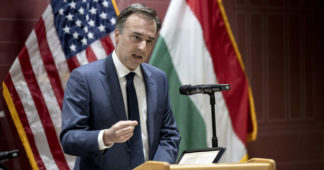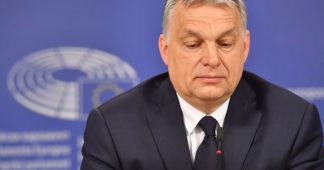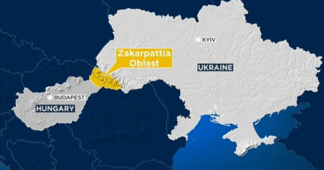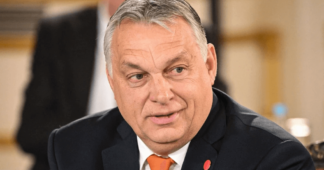BUDAPEST, May 31 (Reuters) – NATO’s plans to get more involved in the war in Ukraine are like a firefighter trying to put out a fire with a flamethrower, Hungary’s Prime Minister Viktor Orban said on Friday.
Orban, who has cultivated relations with Moscow, has been at odds with western nations over support for Ukraine since Russia’s full-scale invasion more than two years ago.
NATO was “getting closer to war” every week, Orban said as alliance foreign ministers were meeting in Prague to discuss military aid to Ukraine.
NATO chief Jens Stoltenberg said on Thursday that the “time has come” for members of the military alliance to reconsider some of the restrictions attached to the use of weapons they supplied to Ukraine.
While Ukrainian leaders urged governments to ease the restrictions, western countries appeared increasingly divided in recent weeks on whether or not Ukraine should be allowed to strike targets on Russian soil.
Hungary’s foreign minister said earlier this month that his country, a NATO member, would not participate in the alliance’s long-term plan to aid Ukraine, which Budapest has called a “crazy mission”.
European Union foreign ministers urged Hungary on Monday to stop blocking measures to provide billions of euros in military aid to Ukraine, as simmering tension with Budapest boiled over in a meeting.
Orban also said on Friday that negotiations about sending French military trainers to Ukraine and to allow the Ukraine military to use Western weapons to attack Russian targets were ideas that were “worrying” and took NATO closer to war.
A NATO mission to Ukraine would risk world war instead of protecting the member states of the alliance, Orban said.
“It is absurd that NATO, instead of defending us, is dragging us, a member state, into a world war. This is as absurd as a firefighter deciding to come and put out a fire with a flamethrower,” he said on Hungarian state radio.
Relations between Budapest and NATO have soured because of Hungary’s foot-dragging over the ratification of Sweden’s NATO accession – finally passed by Budapest in March – and also over nationalist Orban’s warm ties with Moscow despite the Russian invasion of Ukraine in 2022.
We remind our readers that publication of articles on our site does not mean that we agree with what is written. Our policy is to publish anything which we consider of interest, so as to assist our readers in forming their opinions. Sometimes we even publish articles with which we totally disagree, since we believe it is important for our readers to be informed on as wide a spectrum of views as possible.










